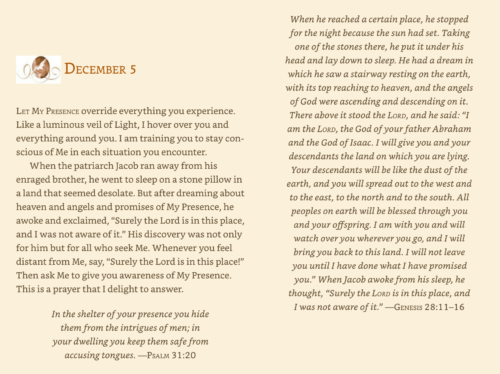This Advent season, Father Richard writes of how we grow in faith by letting go of our need for certainty:
The major heresy of the Western churches is that they have largely turned the very meaning of faith into its exact opposite. True faith involves not knowing and even not needing to know, but we made faith demanding to know and insisting that we do know! The original sin, brilliantly described, warned us against this temptation at the very beginning.
We hear our story of humanity’s original sin in Genesis 2. But this sin, as we’ve called it, really doesn’t look like a sin at all. In fact, wanting knowledge feels like virtue. Haven’t you ever wondered about that? “You may indeed eat of all of the trees in the garden, but of the tree of the knowledge of good and evil you are not to eat” (Genesis 2:16–17). Why would that be a sin? It sounds like a good thing!
In seminary, we called it moral theology. We ate bushels from the tree of the knowledge of good and evil, trying to decide who was good and who was bad. On other levels, our knowledge unfortunately refined and even created the very judgmental mind that Jesus strictly warned us against (see Matthew 7:1–2).
When we lead off with our judgments, love will seldom happen. Religion is almost always corrupted when the mind, which needs to make moral judgments about everything, is the master instead of the servant.
Some would think that is the whole meaning of Christianity: to be able to decide who’s going to heaven and who isn’t, who is holy and who is unholy. This is much more a search for control than it is a search for truth, love, or God. It has to do with ego, which needs to pigeonhole everything to give itself that sense of “I know” and “I am in control.”
I guess God knew that religion would take this direction. So, God said, “Don’t do it. Don’t eat of the tree of the knowledge of good and evil.” God is trying to keep us from a lust for certitude, an undue need for explanation, resolution, and answers. Frankly, these things make biblical faith impossible.
It seems that God is asking humanity to live inside of a cosmic humility. In that holding pattern, instead of insisting on dividing reality into the good and the bad, we bear the ambiguity, the inconsistencies, and the brokenness of all things. It is our ultimate act of solidarity with humanity and with the world.
When we are allowed to name certain individuals as “bad,” persecution, scapegoating, and violence almost always follow. When we too easily presume that we are one of the “good” people, we largely live in illusion and prejudice. I say this as a religious person, but religion has been the justification of much of the violence in human history. God wanted to undercut that very violence at the beginning.
An Evolving Faith
Pastor and author Molly Baskette describes how Jesus lived from a place of growth and inclusion instead of certainty and scapegoating, and calls us to do the same:
All claims to the contrary, Jesus did not preach from a place of rigid binaries and judgments but from a place of continual becoming. He befriended outcasts and lived on the margins of society while staying in relationship with wealthy and powerful people, some of whom became patrons and disciples. He lived in a patriarchal society, but let women correct him and expand his understanding of his mission. Innocent of the trumped-up charges, he allowed himself to be murdered by state violence to expose the injustice of that violence. He asked us to love our enemies, and to bless those who curse us [Luke 6:27–28]. He warned that those who lived by the sword would die by it [Matthew 26:52].
The churches I’ve served strive to follow Jesus in this “third way”: neither returning evil for evil nor caving in to it. Our God does not hate all the same people we do, nor does our God particularly want us to be rich or admired. Our faith, frail as it is sometimes, is also flexible. It is self-correcting as we have profound encounters with people who are different from us and are exposed to new experiences and ideas. If we are willing to be humble, we can continuously root out our own biases, the weeds of white supremacy that are deeply seeded into the soil of our culture, religion, and country.
Staying in the liminal place of holy uncertainty is deeply uncomfortable. But certainty in the life of faith doesn’t serve us well. At some point, the idea or theology or God-image we have adopted may become provably false. Then we’ll have to decide to double down on it or abandon it, which may feel like abandoning God or faith altogether, and leave us entirely unmoored. [1]
For Father Richard, evolutionary thinking and faith are inherently linked:
Evolutionary thinking is, for me, the very core concept of faith, where we trust that God alone steers this mysterious universe, where there is clearly much hidden from us and much still before us—and where “eye has not seen, and ear has not heard, and the human heart has not conceived, what God has prepared for those who love God” (1 Corinthians 2:9).
Evolutionary thinking is contemplative thinking. It leaves the full field of the future in God’s hands and agrees to humbly hold the present with what it only tentatively knows for sure. Evolutionary thinking agrees to knowing and not knowing simultaneously. It sends us on a trajectory, where the ride is itself the destination, and the goal is never clearly in sight. To stay on the ride, to trust the trajectory, to know it is moving, and moving somewhere always better, is just another way to describe faith. We are all in evolution all the time, it seems to me. [2]
